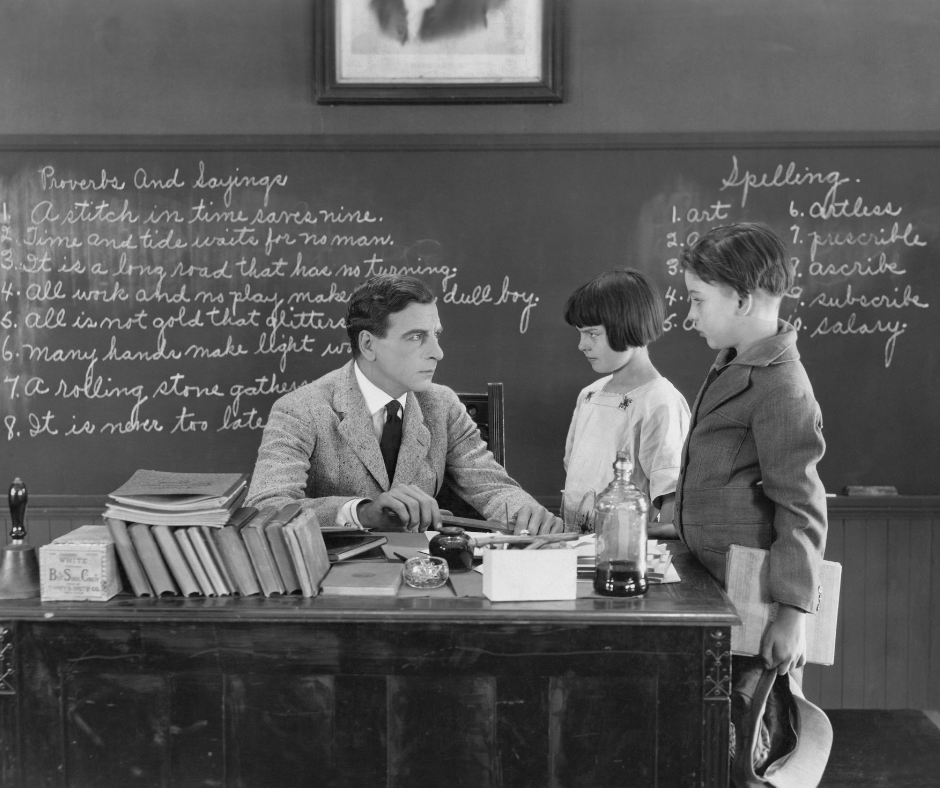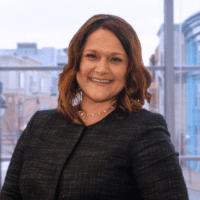In the case of B.L. v. Mahanoy Area School District, a school district’s punishment leveled against a cheerleader for engaging in profanity on a Snap did not withstand legal challenge. Simply put, the ability of a school to punish lewd or profane speech disappears once a student exits school grounds.
A high school cheerleader was barred from the squad as punishment for her out-of-school speech. The district had established a code for cheerleaders which required the members of the squad to “respect their school, coaches, teachers, and other cheerleaders and teams…There will be no toleration of any negative information regarding cheerleading, cheerleaders or coaches on the internet.”
Contact Our Education Law Team
Vulgarity and a Snapchat
The cheerleader posted a Snap featuring a photo of her and a friend holding up their middle fingers with the text, “f*** school f*** softball f*** cheer f*** everything” superimposed on the image. The girls in the image were not wearing their uniforms and did not share the name of the school district.
The school district invoked the above cheer code and dismissed B.L. from the squad. At the hearing, school officials testified that the discipline was imposed because of the student’s use of profanity.
A complaint was filed in the Middle District Court of Pennsylvania along with a Motion for a Preliminary Injunction, the court in granting the injunction determined that the plaintiff cheerleader was likely to succeed on the merits of her First Amendment claim.
The court rejected the school district’s assertion that this was not a “First Amendment case” and further rejected the argument that profane off-campus conduct directed at the school should be considered on-campus speech.
What Speech Can Schools Regulate?
Public school officials act as part of the government and are classified as state actors. As such, under the Bill of Rights, they must act accordingly. This means public school officials cannot infringe on a student’s First Amendment rights to freedom of speech.
School officials also cannot discipline students for profane, off-campus speech. The Fraser profanity exception, first announced by the United States Supreme Court, only applies to on-campus speech. School officials may only limit speech that is 1) “vulgar, lewd, profane, plainly offensive,” or 2) “is reasonably expected to substantially disrupt the school.”
Do Students Lose Rights at School?
A Supreme Court ruling in 1969 states that students do not “shed their constitutional rights to freedom of speech or expression at the schoolhouse gate.” A student’s rights to free speech do not embrace merely the classroom hours. In this case, the school district believed that since the suspension only involved an extracurricular activity, it was free to discipline.
School officials must apply the same framework for analyzing student speech where the punishment involves a suspension from an extracurricular activity as opposed to suspension from school.
Update: COURT RULES FOR HIGH SCHOOL CHEERLEADER IN FREE SPEECH CASE
On June 23, 2021, the United States Supreme Court issued an opinion in the case of Mahanoy Area School District v. B.L. The Supreme Court’s decision, in this case, was widely anticipated, as it reviewed a decision of the Third Circuit Court of Appeals which held that the Tinker standard of student-speech analysis did not apply at all to off-campus speech. In its decision in Mahanoy Area, the United States Supreme Court upheld the outcome of the Third Circuit decision, finding that the School District’s decision to suspend B.L., based on a social media posting she made while off-campus, violated the First Amendment. However, the Supreme Court’s decision explicitly stated that it did not agree with the Third Circuit’s reasoning in reaching that conclusion.
Justice Stephen Breyer’s Statement
Writing for the Court, Justice Stephen Breyer stated that, unlike the Third Circuit, the Supreme Court did not believe that the special characteristics that give schools additional licenses to regulate student speech disappear when the speech takes place off-campus. The Court noted that a school’s regulatory interest remained significant in some off-campus circumstances. Justice Breyer listed instances of serious or severe bullying, harassment targeting particular individuals, threats to teachers or other students, the use of computers, and breaches of school security devices as instances where a school district would still be able to regulate off-campus speech where it substantially disrupted the school environment. Justice Breyer specifically stated that the Supreme Court was not setting forth abroad, highly general First Amendment Rule, articulating just what counted as off-campus speech.
Three Features of Off-Campus Speech Regulation
The Court mentioned three features of off-campus speech that often distinguish a school’s efforts to regulate off-campus speech from their efforts to regulate on-campus speech. First, Justice Breyer noted that in relation to off-campus speech, a school will rarely stand in loco parentis. Off-campus speech would normally fall within the zone of parental rather than school-related responsibility. Second, from the student speaker’s perspective, regulation of off-campus speech, when coupled with regulations of on-campus speech, would include all speech the student utters during the full 24-hour day. The Court noted that a school would have a heavy burden to justify intervention when it came to policing political or religious speech during outside school programs or activities. Third, the Court noted that the school itself had an interest in protecting its students’ unpopular expressions, especially when the expression takes place off-campus. The Court noted the historical protections of unpopular ideas and further noted that schools have a strong interest in insuring that future generations understand that although one might disapprove of another’s speech, it is necessary to defend that individual’s right to make that speech.
B.L.’s Speech Protected Under the Tinker Standard
In analyzing the facts of the case, the Court considered that the school’s interest in teaching good manners and punishing the use of vulgar language was weakened by the fact that B.L. spoke outside of the school on her own time. Second, the Court noted that any disruption to the operations of the school was limited to a 5 to 10-minute discussion of the matter in a class for a couple of days and that other members of B.L.’s cheerleading team were upset. The Court did not feel that this was enough of a substantial disruption to the school atmosphere to defeat First Amendment protection under Tinker. Finally, the Court noted that the School District presented evidence that expressed a concern for the morale of the cheerleading team. The Court noted that there was little evidence to support this contention to the point where it could create a substantial interference or disruption of the school’s efforts to maintain team cohesion. Based on these factors, the Court determined that B.L.’s speech was protected under the Tinker standard.
Tinker Applies to Off-Campus Speech
The Supreme Court’s decision is notable in that it clarified the rationale of the Third Circuit which had stated that Tinker did not apply to any off-campus speech at all. In its holding, the Supreme Court has returned, for the time being, to analyzing off-campus speech within the Tinker framework. Accordingly, applying the Tinker criteria, school officials cannot censor student expression unless they can reasonably predict that the expression will create a substantial disruption or material interference in school activities or invade the rights of others. School districts should continue to analyze off-campus speech under this standard when determining if a student’s speech is protected by the First Amendment.
If your district is facing issues related to this article, contact the Education Law Team at education@mbm-law.net.


